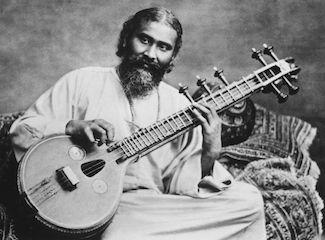Inayat Khan

Inayat Khan was an Indian Sufi philosopher, musician, poet and writer(1882-1927). He arrived in the Western world from India in 1910, sent on a mission of spreading the Universal Message of Love, Harmony and Beauty by his master Seyed Mohammed Hashim Madani. In his autobiography he writes:
"When our ship arrived in the harbor of New York, the first land of my destination, I saw before me the welcoming statue of Liberty, an idol of rock, which I felt was awaiting the hour to turn into an ideal, awaiting the moment to rise from material liberty to spiritual liberty. Its wings suggested to me that it wanted to spread from national liberty to world liberty."
The concept of Spiritual Liberty stands central in Khan’s teachings namely that there is only one truth: the nobility of the heart and that there is only one true heart: selfless feelings within.
Inayat Khan summarizes his own teachings as follows:
"I gave up my music because I received from it all that I had to receive. To serve God one must sacrifice what is dearest to one; and so, I sacrificed my music. I had composed songs; I sang and played the vina; and practicing this music I arrived at a stage where I touched the Music of the Spheres. Then every soul became for me a musical note, and all life became music. Inspired by it I spoke to the people, and those who were attracted by my words listened to them instead of listening to my songs. Now, if I do anything, it is to tune souls instead of instruments; to harmonize people instead of notes. If there is anything in my philosophy, it is the law of harmony: that one must put oneself in harmony with oneself and with others."